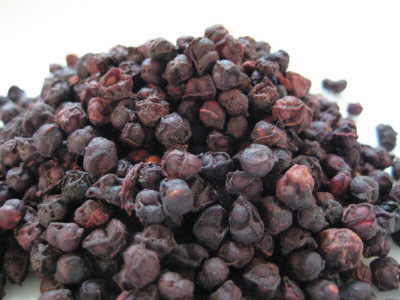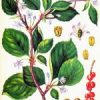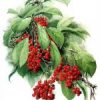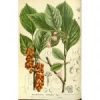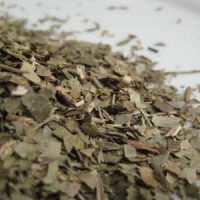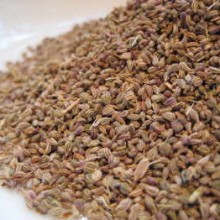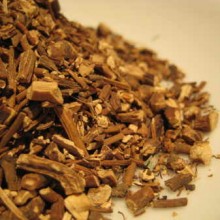Schizandra is a deciduous and woody vine native to forests of Northern China and the Russian Far East. It is hardy for the most part and likes some shade with moist, well-drained soil.
Flowers on a female plant will only produce fruit when fertilized with pollen from a male plant. A hybrid selection titled ‘Eastern Prince‘ is self-fertile but bware if buying the plant to grow yourself, many seedlings sold are called ‘Eastern Prince‘ and then typically turn out to be single sex plants that will not fruit unless pollinated by another plant.
Traditional Uses of Schizandra Berries:-
Schizandra is a major tonic herb in Chinese medicine, long prized by everyone from emperors to family herbalists for its ability to prolong youth ( yes well!) but it does help to increase stamina, and prevent fatigue.
Products from the herb are derived from the small, bright red, berry-like fruit of a hardy vine of the magnolia family. The plant is native to China as well as parts of Japan, Korea, and Russia.
Two dozen additional species of schizandra also exist, all indigenous to Asia with the exception of a relatively rare schizandra vine native to woody areas of North Carolina and neighboring states. The Chinese refer to the dried berries as wu-wei-zi and five flavour berry
Schizandra is gaining in popularity as a tonic or adaptogen that can balance bodily functions and improve the body’s response to stress.
It is taken to nourish the liver and kidneys, prevent the adverse side effects of chemotherapy and radiation treatments, and promote recovery after surgery.
In Russia schizandra is a registered medicine for vision difficulties. Recent animal studies by Chinese researchers and others indicate that schizandra may improve aerobic capacity. Other studies suggest that it is a smart herb capable of promoting mental function and benefitting some aspects of learning and memory.
Schizandra may also boost mood. A study published in 1996 isolated a compound from schizandra that showed anti-HIV activity.
The Chinese say that schizandra berries have all five flavours (sweet, sour, bitter, hot, salty – hence their name of five flavour berry) and have long consumed them as a food. Average doses of herbal preparations are considered safe and nontoxic. Mild side effects may include indigestion and skin rash.
I am sometimes asked why some Schizandra berries appear to have a bloom coating them and some not and as far as I can ascertain the answer is simply because some of the harvest comes from Northern China (apparently the best quality) and from where this product was derived and some from the Southern provinces. It is colder in the north and the berries there are often frosted and better for it before harvesting (as in Sloe berries here where the folklore is that one shouldn’t pick them before the first frosts) the theory being that the frost concentrates and preserves better the chemical constituents in the dried fruit.

